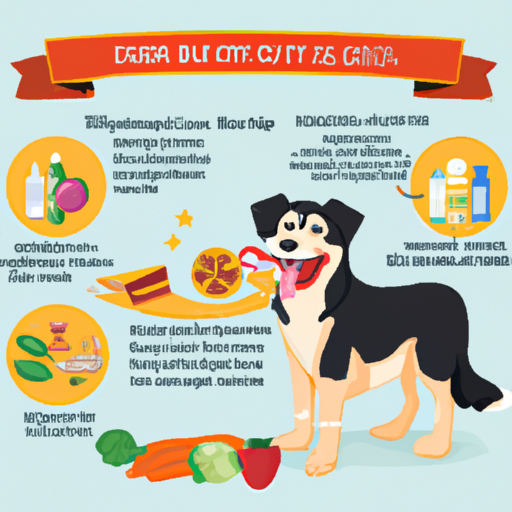Bloat, or gastric dilatation-volvulus (GDV), is a serious condition that can affect your four-legged friend. But, don’t worry. You, as a caregiver, have the power to prevent this from happening. Let’s explore some natural ways to protect your dog from bloat.
1. Understand What Bloat Is
Before we get into the prevention, let’s understand what bloat is. Bloat is a condition where a dog’s stomach fills up with gas and sometimes twists. This can lead to a life-threatening situation, needing immediate veterinary attention. It mostly affects large breed, deep-chested dogs, but any dog can be at risk.
2. Feed Your Dog Multiple Small Meals
Instead of a large meal once or twice a day, try giving your dog several smaller meals throughout the day. This can prevent the stomach from filling up too much at once and reduce the risk of bloat.
- Divide the food into at least 3 portions.
- Try to feed your dog at the same time every day.
- Avoid vigorous exercise right before and after eating.
3. Avoid Rapid Eating
Just like in humans, rapid eating can lead to indigestion and bloating in dogs. There are few ways you can slow down your dog’s eating.
- Use a slow-feeder bowl.
- Spread the food out on a large tray.
- Put a large ball in their regular bowl.
| Methods to Slow Down Eating | Description |
|---|---|
| Slow-feeder bowl | These bowls have mazes or pillars in them to slow down eating. |
| Spreading food on a tray | This makes your dog take time to find and eat each kibble. |
| Large ball in a bowl | This forces your dog to eat around it, slowing them down. |
4. Keep Your Dog Hydrated
Hydration is key in preventing bloat. Make sure your dog always has access to fresh water. However, avoid letting them drink excessively after eating as this can also contribute to bloat.
5. Regular Exercise
Regular, moderate exercise can help keep your dog’s digestive system healthy and reduce the risk of bloat. However, avoid strenuous exercise right after meals.
FAQs
Q: What are the symptoms of bloat in dogs?
A: Symptoms can include a swollen abdomen, excessive drooling, restlessness, rapid heart rate, and signs of discomfort.
Q: What breeds are most susceptible to bloat?
A: Large breed, deep-chested dogs like Great Danes, German Shepherds, and Boxers are more susceptible.
Q: Can small dogs get bloat?
A: Yes, while it’s less common, small dogs can also get bloat.
Q: Should I rush my dog to the vet if I suspect bloat?
A: Absolutely. Bloat is a life-threatening condition that needs immediate veterinary attention.
Q: Can diet influence the risk of bloat?
A: Yes, a diet high in fat and citric acid can increase the risk of bloat. Feeding your dog a balanced diet can help reduce the risk.
Remember, prevention is always better than cure. By following these simple steps, you can keep your dog safe from the risk of bloat.



